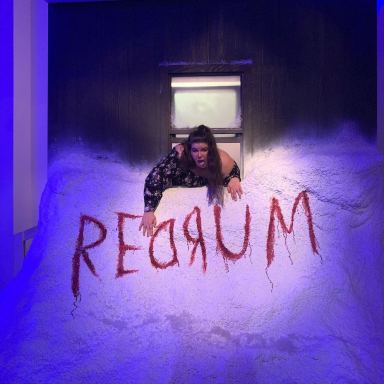The Best Vigilante Movies of All Time
A survey of the top vigilante movies and a history of vigilantism in storytelling.
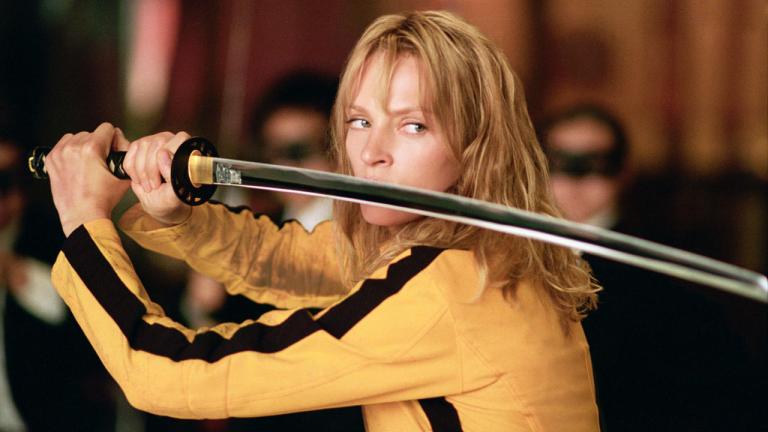
The vigilante presents a moral dilemma, which may be the root of his appeal to movie audiences. It is a widely accepted notion that one should never take the law into one’s own hands because society would immediately unravel into chaos, but what is an average citizen to do in the face of a disinterested government which fails to protect its citizens?
The vigilante, therefore, becomes both a hero and an antihero at the same time. But when the law is acting with criminal negligence, is it really so wrong to appoint oneself as society’s savior? It’s clearly risky, but that may only add to the vigilante’s heroic luster.
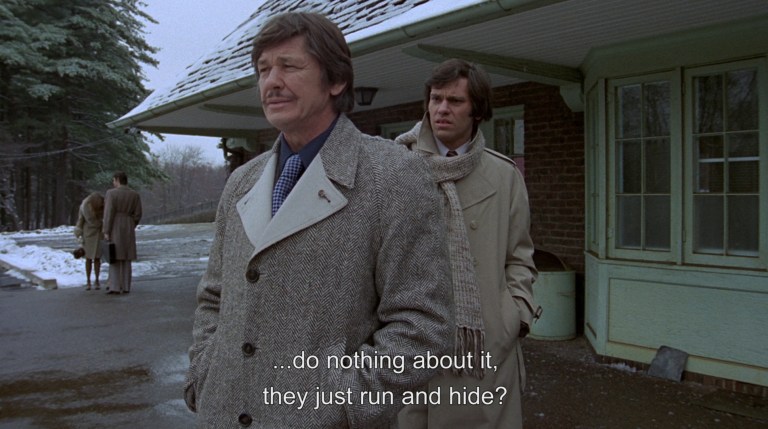
Many of the most famous vigilante films such as Billy Jack and Death Wish were made in the 1970s, an era where for the first time in American history, the public was losing faith in its institutions. Violent crime was at an all-time high, but it seemed as if criminals were getting mere slaps on the wrists for their brutality. Along came vigilante films to sate a public’s appetite for extralegal justice.
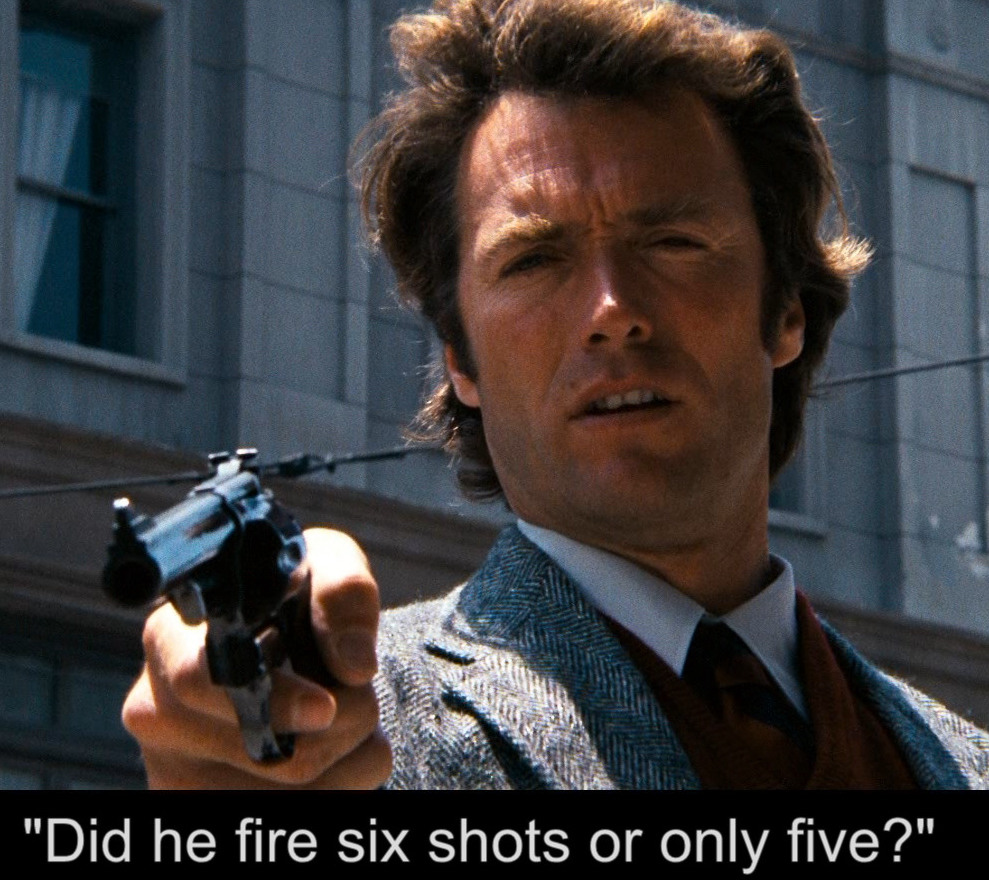
A vigilante film differs from a revenge movie in the sense that a vigilante seeks justice against a society-wide problem that may not have directly affected him or her, whereas “revenge” is always personal. A vigilante also sees themselves as a last resort when the law is too corrupt or weak to address societal problems. Vigilantism is extra-legal and meant to address a systemic problem, whereas revenge may only involve an individual perpetrator and someone who seeks to settle the score against them. A movie such as Joe (1970, reviewed below) can be both, because Bill Compton is seeking personal revenge against the drug dealer who gave his daughter an overdose, whereas his partner-in-crime Joe Curran is a vigilante who aims to battle the hippies because he feels the police are refusing to do their job.
Here are capsule reviews of some of the top and best vigilante films of all time.
Old Vigilante Movies
The Ox-Bow Incident (1943)
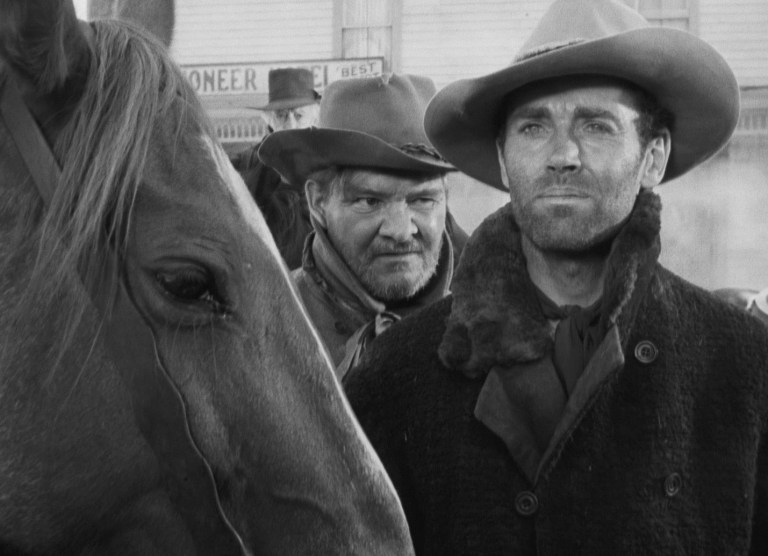
Based on the 1940 novel by Walter Van Tilburg Clark, The Ox-Bow Incident stars Henry Fonda and Harry Morgan as a pair of drifters who wind up in a small, dusty Nevada town in 1885 during the heat of a local scandal where disgruntled citizens seek to lynch a trio of men who are suspected of murdering a local farmer and stealing his cattle. The two drifters join the vengeful posse not out of any desire for justice, but to avert suspicion away from them. 2020 Movie Reviews calls Fonda’s character, Gil Carter, “one of screen history’s least sympathetic heroes”: “As well as being largely unsympathetic, Gil barely qualifies as a hero in the conventional sense….He’s afraid to protest too strongly against the proposed lynching of the three men for fear of joining them, and it’s this failure of people to speak out against injustice for fear of becoming victims themselves which is at the core of The Ox-Bow Incident’s story.” Clint Eastwood has named The Ox-Bow Incident as his favorite film of all time.
Yojimbo (1961)
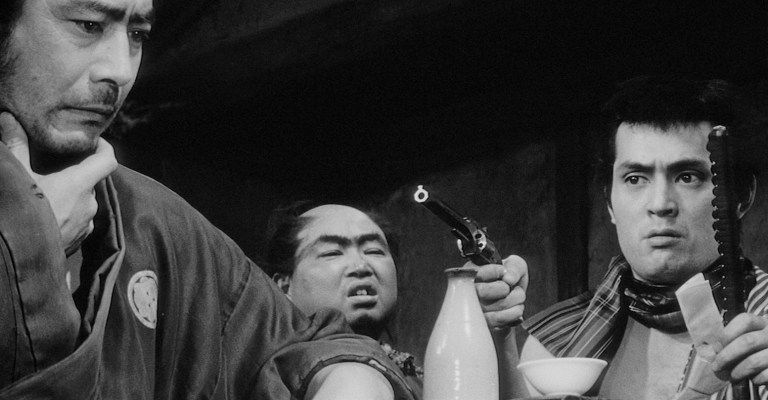
The term “yojimbo” means “bodyguard” in Japanese. In this black-and-white classic by Japanese director Akira Kurosawa (The Seven Samurai), Toshiro Mifune stars as Sanjuro, an embittered wandering samurai who drifts into a town that is overrun with gamblers and controlled by rival criminal gangs. As Roger Ebert explains, “Sanjuro’s strategy is an elaborate chess game in which he is playing for neither side but plans instead to upset the board. ‘In this town, I’ll get paid for killing,’ he muses, ‘and this town would be better off if they were dead.’” In the film’s famous opening sequence, a dog is seen walking through the sketchy town’s dusty streets carrying a human hand in its mouth. This was the director’s idea to signal that the town was corrupt and evil. In 1964, Sergio Leone used the plot of Yojimbo as the template for his first Spaghetti Western, A Fistful of Dollars. Leone was sued by Kurosawa for copyright infringement, which stalled his film’s release until 1967.
Joe (1970)
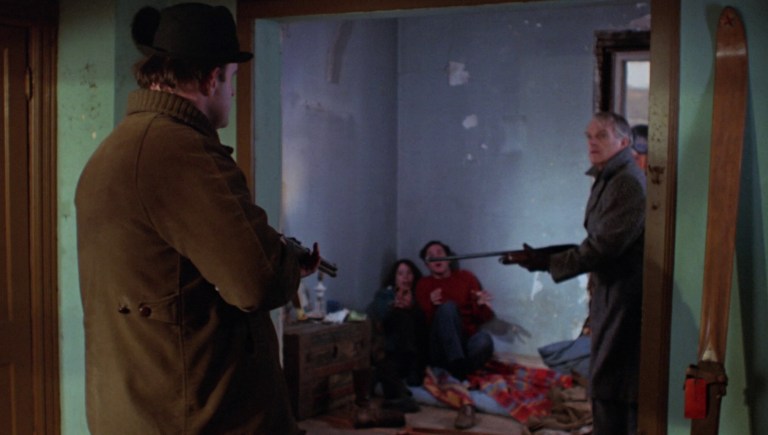
In a film which derives its tension from the culture wars of the late 1960s, Peter Boyle stars in the title role as Joe Curran, a bigoted and small-minded factory worker who, purely by chance, meets wealthy businessman Bill Compton (Dennis Patrick), who confesses to Joe that he just murdered the boyfriend of his drug-addicted daughter Melissa (Susan Sarandon). Together, despite their class differences, Joe and Bill unite to confront and defeat the plague of degenerates they feel are destroying their country. When Melissa goes missing, Joe and Bill roam the streets of Greenwich Village seeking to rescue her from the drug-and-sex-addled hippie underworld.
Vigilante Movies from the 1970s
Billy Jack (1971)
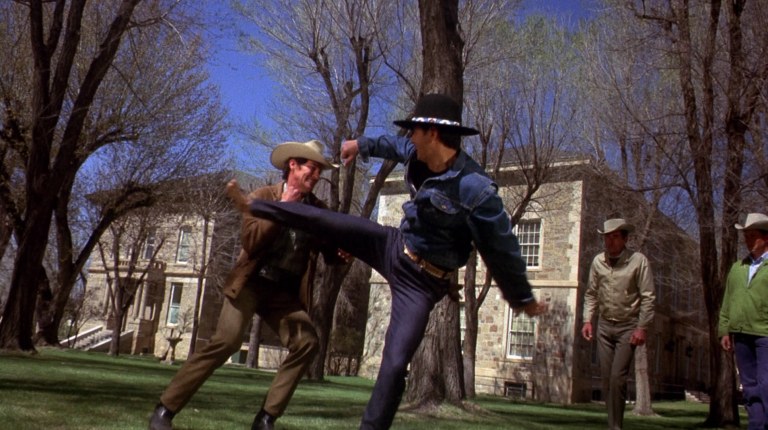
In this sequel to 1967’s The Born Losers, Tom Laughlin reprises his role as Billy Jack, a half-Native ex-Marine and hapkido expert who forms a one-man army to save wild horses, Native Americans, and the children of the “Freedom School” on a small desert town’s outskirts from the malicious predations of a corrupt local sheriff and his sadistic henchmen. Although the film’s budget was under $1 million, its ruthless depiction of the oppressed finally fighting back against a cruel establishment made it the top-grossing film of 1971. Billy Jack was said to be one of Elvis Presley’s favorite movies. It would be followed by The Trial of Billy Jack (1974) and Billy Jack Goes to Washington (1977).
Dirty Harry (1971)
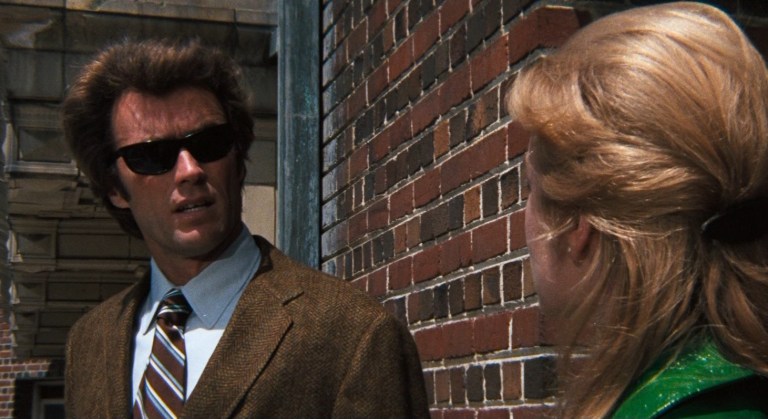
Very loosely based on the real-life story of the Zodiac Killer, who taunted San Francisco police and was never caught, Dirty Harry stars Clint Eastwood as San Francisco Police Inspector Harry Callahan, who is tasked with finding and bringing to justice the “Scorpio Killer” (Andrew Robinson), a hippie sniper who captures victims and demands ransom through notes he leaves at the crime scene. It soon becomes a battle of wits between Harry and the killer—and Harry is willing to go outside the law to bring the murderer to justice. Commenting on the film’s insinuation that might makes right, Roger Ebert writes, “The movie’s moral position is fascist. No doubt about it.”
Straw Dogs (1971)
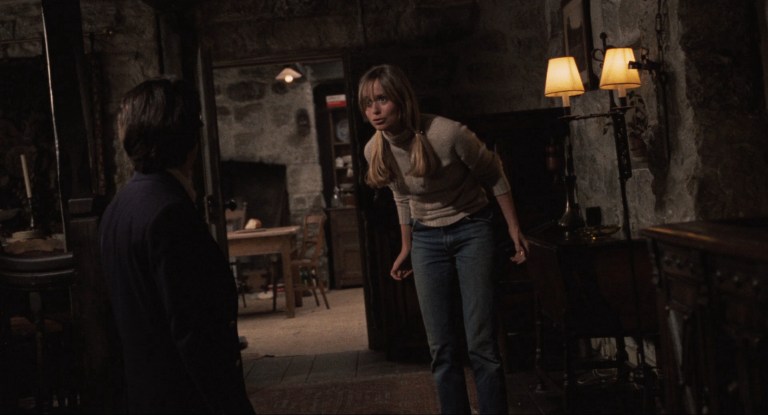
Sam Peckinpah, a director who gained fame with 1969’s hyper-violent and morally ambiguous Western film The Wild Bunch, returns here with the story of American astrophysicist David Sumner (Dustin Hoffman), who moves with his British wife (Susan George) to a small English village, only to find himself tormented by the cruel and unsophisticated locals. Realizing that his passivity and tolerance might get him killed, David declares, “I will not allow violence against this house.” The final 20 minutes of the film, though, are almost unbearably violent. According to Roger Ebert, “The most offensive thing about the movie is its hypocrisy; it is totally committed to the pornography of violence but lays on the moral outrage with a shovel.”
Magnum Force (1973)
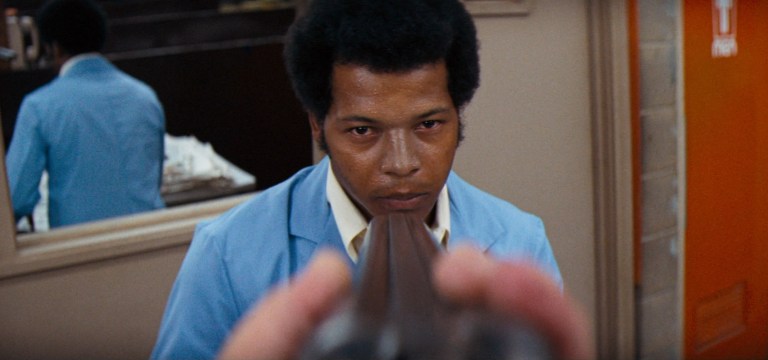
Clint Eastwood reprises his iconic role as San Francisco Police Inspector “Dirty” Harry Callahan, who is assigned to figure out who’s been killing an array of the city’s more notorious and prominent criminals. When he realizes that the culprits are motorcycle policemen who’ve decided to take matters into their own hands with the help of standard-issue .357 Magnum pistols, he is faced with a moral dilemma—in killing the criminals without a trial, the cops have become criminals, too, so who is the bad guy here? The film’s plot was said to be partially inspired by Brazil’s government-sponsored death squads, who had gained huge media attention at the time.
Walking Tall (1973)
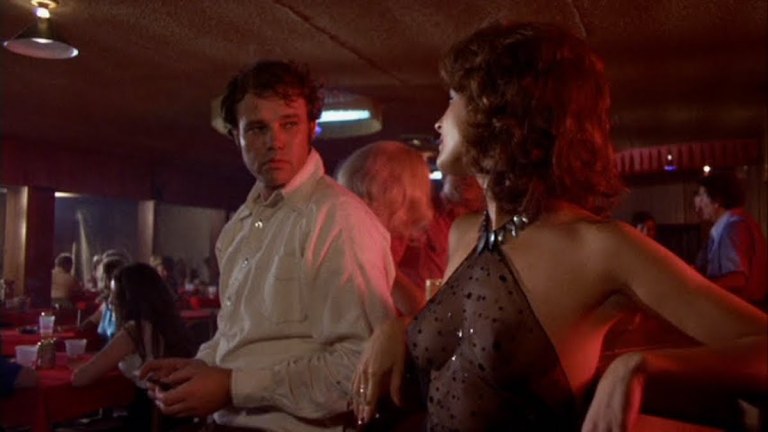
Buford Pusser was a real-life ex-wrestler who became the sheriff of a small town in Tennessee and found himself confronted not only with the grisly thugs in the Dixie Mafia, but with a local government and police force that were helplessly corrupt. In real life, taking matters into his own hands—mostly by swinging a four-foot wooden club at whomever he thought deserved it—Pusser managed to clean up the entire mess. In Walking Tall, Joe Don Baker stars as Buford Pusser in this action film that is touted as a classic example of “Southsploitation” or “Hixploitation.” All Movie writes, “Walking Tall may be a little too dated and lacking in polish for many modern viewers, but it is necessary viewing for anyone interested in action cinema since it remains one of the most influential (and frequently imitated) films of this genre to emerge from the 1970s.”
Death Wish (1974)

In what is perhaps the most famous and iconic vigilante film of all time, grizzled tough guy Charles Bronson stars as Paul Kersey, a liberal architect whose political views take a hard turn for the right after thug burglars break into his Manhattan apartment, killing his wife and raping his daughter. As the legend has it, director Michael Winner pitched the project to Bronson by saying, “The best script I’ve got is ‘Death Wish’. It’s about a man whose wife and daughter are mugged and he goes out and shoots muggers.” When Bronson replied, “I’d like to do that,” Winner asked, “The film?” Bronson answered, “No—shoot muggers.” Charles Bronson later denied that the film was pro-vigilante: “I certainly don’t advocate anyone taking the law into their own hands. I don’t think that the film advocates that, either. If my films have a lesson, it’s that violence doesn’t pay. My opinion is that violence only breeds violence.” Roger Ebert writes, “Death Wish is a quasifascist advertisement for urban vigilantes, done up in a slick and exciting action movie; we like it even while we’re turned off by the message.”
Taxi Driver (1976)
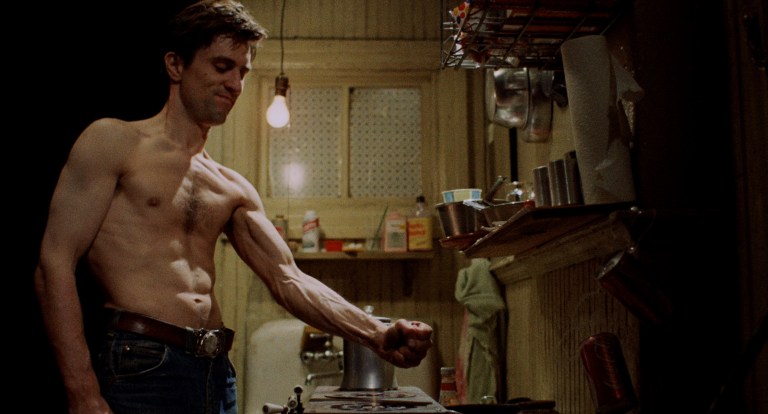
In a film that screenwriter Paul Schrader says was about the pathology of male loneliness—particularly the way that some males will push people away in order to maintain their isolation and agony—Robert De Niro turns in a career-making performance as Travis Bickle, an insomniac Vietnam Vet who drives a cab during the night shift in New York City, which he concludes is overrun with “scum” that need to be washed off the streets. In the course of bungling a potential relationship with a beautiful political volunteer named Betsy (Cybill Shepherd) and not following through on an assassination plot against a presidential candidate, Travis befriends Iris (Jodie Foster), a twelve-year-old prostitute whose plight embodies everything that Travis feels is wrong with the world. Reel Views notes the irony that such a maladjusted and violent person as Travis becomes a hero simply by killing the “bad guys”: “As the film closes, the misanthrope has been embraced as the model citizen—someone who takes on pimps, drug dealers, and mobsters to save one little girl.”
The Outlaw Josey Wales (1976)
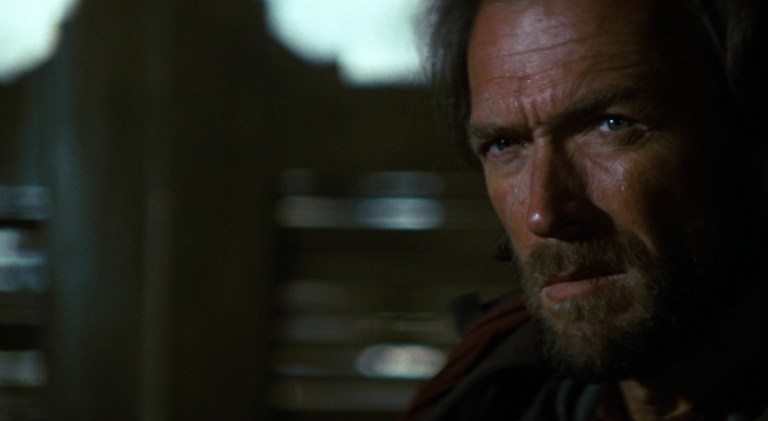
Clint Eastwood directed and stars in the title role in this film about a Missouri farmer and unrepentant Confederate whose house was burned down and entire family was wiped out by a psychotic Union soldier toward the end of the Civil War. To seek revenge, he joins up with a band of Rebel guerrillas, only to wind up as their last surviving member. He then finds himself stalked by an endless supply of Union-financed bounty hunters whose bosses won’t be satisfied until Josey Wales is dead.
Vigilante Movies 1980s – 2020s
Ms. 45 (1981)

Actress Zoe Tamerlis was only 17 when she starred in Abel Ferrara’s violence-soaked vengeance tale of a mute and shy Manhattan seamstress who loses her mind after being raped twice in the same day. Seeking to clean New York’s dirty streets in the same manner as Travis Bickle in Taxi Driver and Paul Kersey in Death Wish, she grabs a .45-caliber pistol and heads out into the darkness, shooting at anyone who even remotely resembles a sexual predator. The Terror Trap writes, “The shocking finale—in which Zoë attends a costume party dressed as a gun-toting nun who ends up shooting every man in sight—sounds deliriously outrageous (and it is).”
Vigilante (1982)
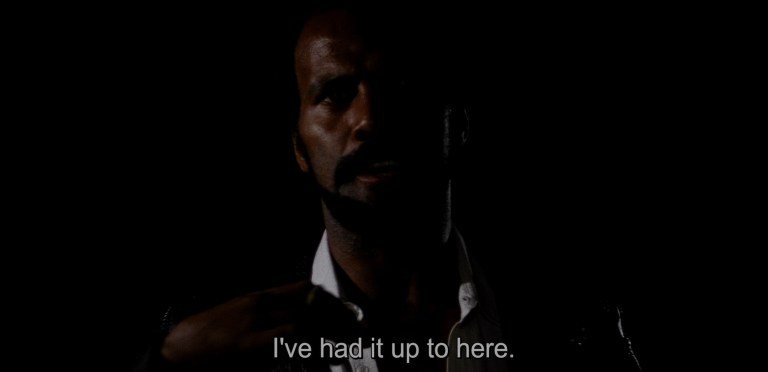
Amid an out-of-control crisis of violent crime that a corrupt justice system is doing nothing to stop, a group of New York City factory workers decide to form a vigilante group led by Nick (blaxploitation star Fred Williamson). At first his coworker Eddie Marino (Robert Forster) refuses to join the vigilante gang on principle. But when a Puerto Rican gang kills his son and rapes his wife, Eddie becomes a devoted, and disturbingly bloodthirsty, vigilante. TV Guide says, “This film will make city dwellers who feel harassed by gangs stand up and cheer.”
Falling Down (1993)
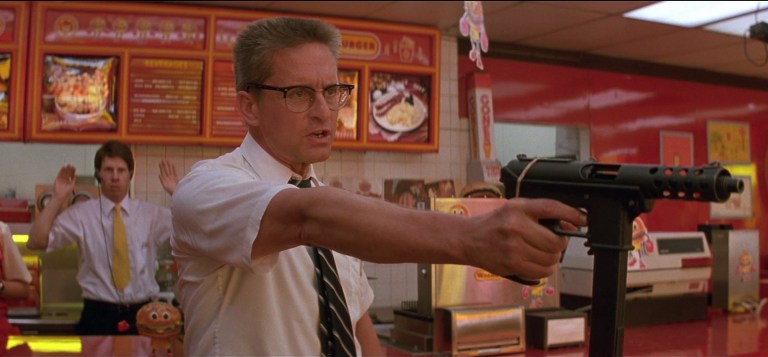
Michael Douglas turns in what he says is his finest film performance—and his father, legendary actor Kirk Douglas, agreed—as William Foster, an unemployed and divorced engineer whose only mission on one bright sunny LA day is to get across town and visit his daughter on her birthday. Stuck in a traffic jam, he leaves his car in the middle of the freeway and decides to walk the rest of the way toward the beachside city of Venice, CA. Immersed in the degradation and cruelty of a modern Babylon, he eventually snaps and becomes ruthlessly violent toward anyone who treats him with the slightest inconsideration. He becomes an instant urban legend, leading police sergeant Martin Prendergast (Robert Duvall) to seek out and find this self-made lawman before he hurts anyone else. Reel Views writes, “it gives a measure of vicarious enjoyment to watch [Foster] dole out punishment to those that insult, snub, and otherwise aggravate him.”
The Boondock Saints (1999)
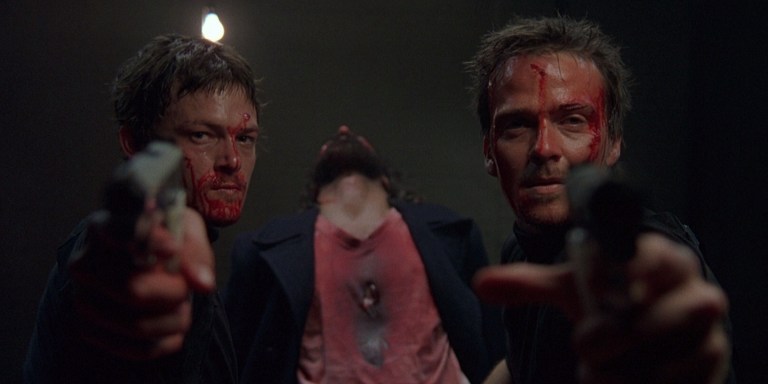
Connor McManus (Sean Patrick Flanery) and Murphy McManus (Norman Reedus) are two Irish Catholic brothers in Boston who accidentally kill some thugs from the Russian Mafia. While in jail, they receive a message from God that he is sending them on a holy mission to entirely wipe out the criminal underworld. Released from jail because, they become heroes who appoint themselves as righteous avengers. Comparing the movie’s cheap, coarse, and exploitative edginess to Quentin Tarantino’s style, Film Static says Boondock Saints “comes and goes and means absolutely nothing, says absolutely nothing, presents absolutely nothing new, nothing of interest or of intelligence or of merit.”
Kill Bill, Vol. 1 (2003)

Uma Thurman awakes from a coma seeking justice against those who tried to kill her.
In Quentin Tarantino’s fourth film—which was split into two volumes, this one released in October 2003 and Volume II released six months later—Uma Thurman stars as “The Bride,” a seasoned assassin who wakes up from a four-year coma to realize she was nearly murdered by the other members of the Deadly Viper Assassination Squad. She makes it her mission to assassinate the former colleagues who tried assassinating her and killed the baby with whom she was pregnant. Critic James Berardinelli writes, “Kill Bill is a basic revenge tale that Tarantino has dressed up by using gravity-defying martial arts and comically copious amounts of blood.…Tarantino has designed Kill Bill as an homage to the Hong Kong movies he dearly loves.”
Taken Trilogy (2008 – 2014)

This trio of English-language French action films—Taken (2008), Taken 2 (2012), and Taken 3 (2014)—was created by legendary filmmaker Luc Besson, who produced and cowrote all three with screenwriter Robert Mark Kamen. Throughout the series, Liam Neeson stars as Bryan Mills, a retired CIA agent. In Taken, he travels across the globe to rescue his daughter, who has been kidnapped by Albanian smugglers while in France. In the course of his rescue mission, he kills the father of a Turkish terrorist and gang boss. In Taken 2, this gang boss seeks to kill Bryan Mills while he’s vacationing with his family in Istanbul. In the final installment, Bryan gets framed for murdering his wife and must rush to find the real killers before the US government finds and arrests him. Although the critical response grew more negative with each sequel, box-office receipts remained robust, with the trilogy raking in nearly $1 billion total in revenue.
Hellboy (2004)
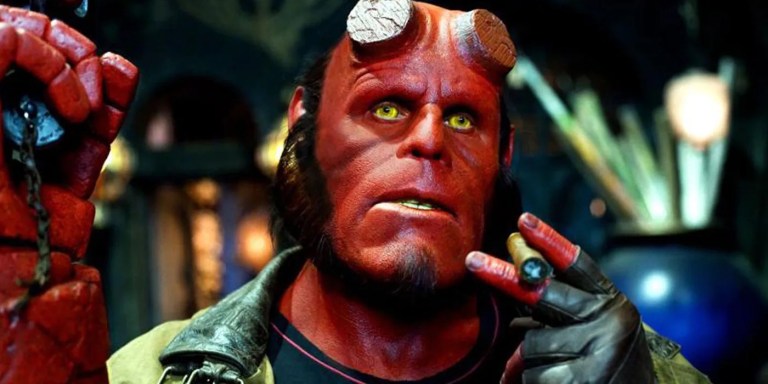
As World War II draws to a close and the Nazis suspect they may be losing, a pair of desperate German officers seek the advice of famous Russian mystic Rasputin, who is cloistered in secrecy on a Scottish island. Their incantations issue forth a red-skinned, seven-foot demon they call “Hellboy” (Ron Perlman). Although the Nazis surrender before they get a chance to have Hellboy fight on their behalf, sixty years later the half-blood creature teams up with other freakish entities to fight for the forces of good. Guillermo del Toro directed and wrote the screenplay. A sequel, Hellboy 2: The Golden Army, was released in 2008.
Gran Torino (2008)

At 78 years old, Clint Eastwood directed and starred in this tale of a crusty Korean War vet and former Detroit autoworker named Walt Kowalski, who is grieving the recent passing of his wife. He is also grieving the demographic changes of his Detroit neighborhood, which finds him living next to a Hmong family who are being taunted by members of a local Asian gang in an attempt to recruit a teenage Hmong male from the family into their ranks. When, as part of a gang initiation, the teen attempts to steal Walt’s cherished 1972 Gran Torino, Walt appoints himself protector of the family as well as the entire neighborhood and its old notions of right and wrong. Roger Ebert notes that although Walt is portrayed as a bigot, there are no clear good guys in this film: “Gran Torino isn’t a liberal parable. It’s more like, out of the frying pan and into the melting pot.”
Inglourious Basterds (2009)
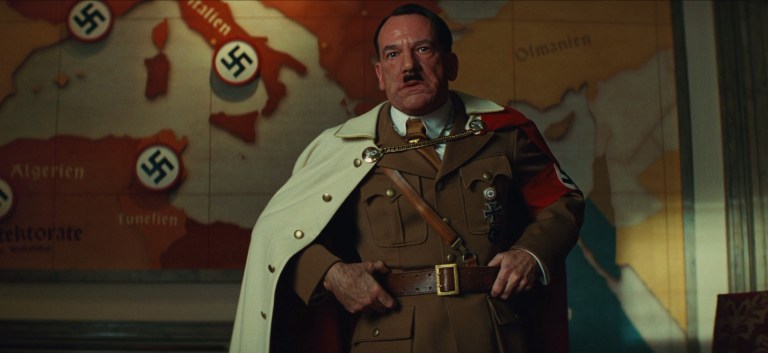
Although it may seem strange to do a “revenge” movie against the side that lost the war, this is exactly the theme of Quentin Tarantino’s film. Brad Pitt stars as Aldo Laine, a renegade American soldier who leads a ragtag group of Jewish vigilantes who seek to wipe out nearly all of the Nazi top brass at a theatrical screening of a propaganda film lionizing fascist propagandist Joseph Goebbels. Calling it “what could arguably be considered the most audacious World War II movie of all time,” critic James Berardinelli writes, “The running length is a gaudy 153 minutes, yet the film moves so smoothly and the moving parts come together so cleanly that the time passes easily. It’s one hell of an enjoyable ride into the nightmare that was Nazi-occupied France, and thinking you know how it all ends doesn’t make it so.”
Drive (2011)
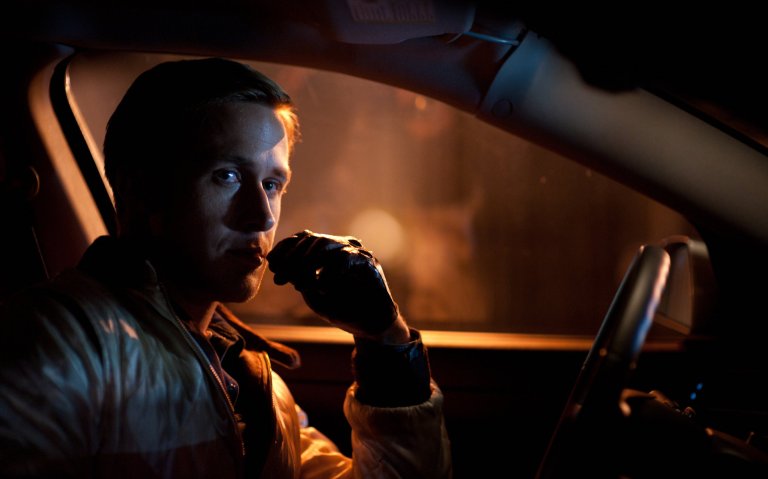
Ryan Gosling stars as a mysterious man of few words known only as “Driver,” who works as a movie stunt-car driver in the daytime and at night becomes the main driver for a racing team that provides “transportation” for criminals. His life becomes intensely complicated when he meets the husband of the woman with whom he’s fallen in love. Screen Rant writes, “Nicolas Winding Refn’s Drive is a slick neo-noir starring Ryan Gosling as a getaway driver who runs afoul of the mob when he gets involved with his neighbor’s ex-con husband. The movie has one brief car chase and a few incidents of brutal hammer-based vigilante justice, but it’s mostly just shots of brooding Gosling driving through L.A. and flirting with Carey Mulligan.”
John Wick Franchise (2014 – 2023)
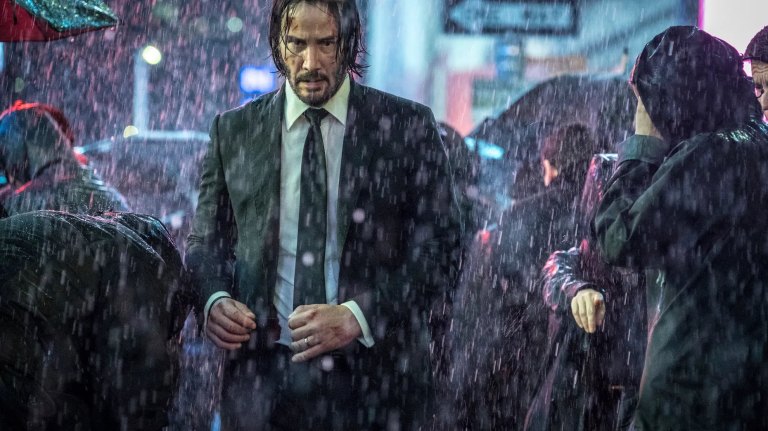
In the first of a film franchise that will have spawned three sequels as of 2023, Keanu Reeves stars as a retired hitman who is mourning the death of his wife and has only two possessions which he holds dear: a vintage 1969 Ford Mustang and a dog which his wife gave him before she died. When unscrupulous and disrespectful Russian mobsters steal his car and kill his dog, John Wick reluctantly returns to his life as a killer. Reel Views writes, “John Wick knows what it is and is unapologetic about it. This is a kick-butt action film with no pretensions of being anything else. There is a short dialogue about karma and God, but it’s neither deep nor long.”
Rambo: Last Blood (2019)
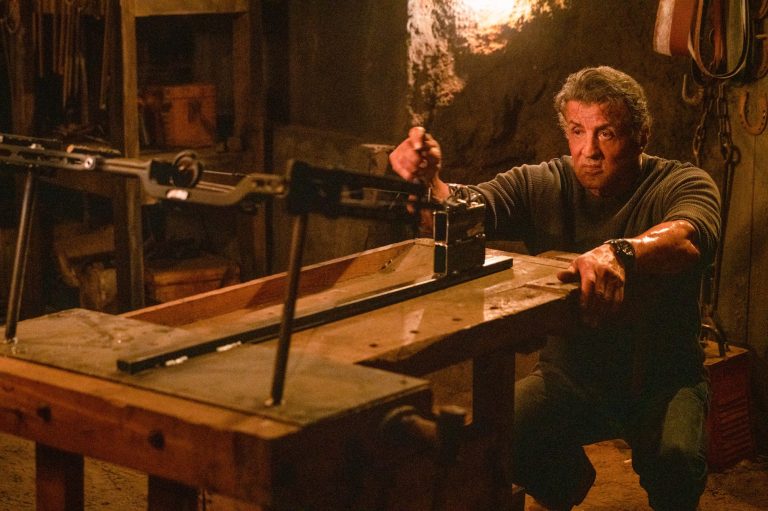
In what was marketed as the final film in Sylvester Stallone’s series about John Rambo, a ruthless former Green Beret from Vietnam who often works outside of the law to catch and kill the villains, Rambo is attempting to live peacefully at an Arizona horse ranch when his teen niece Gabriela (Yvette Monreal) visits her father in Mexico, only to be kidnapped and taken as a sex slave by drug cartels. Rambo’s final mission is unflinchingly violent and gory. Reel Views writes, “While watching Last Blood, I at times felt like I needed to take a shower. The movie generates that strong of a stench. Stallone’s argument might be to call Last Blood ‘uncompromising,’ but even conceding that to be the case, the result is an unwatchable piece of excrement.”
More Vigilante Movies
- Broadway to Cheyenne (1932) in this pre-Code Western, a New York policeman (Matthew Betz) survives a bribery attempt by criminals and attempts to decompress in Wyoming, only to find that’s where the criminals have also fled.
- Django (1966) in this early Spaghetti Western, the title character attempts to avenge an abused prostitute by inserting himself into a feud between a gang and a band of political insurrectionists.
- The Wild Bunch (1969) in director Sam Peckinpah’s game-changing violent masterpiece, a gang of outlaws attempting to pull off one last train heist are thwarted by a group of bounty hunters hired by the train company.
- Shaft (1971) in this blaxploitation classic, Richard Roundtree stars as a cop who is hired by a mobster to rescue his daughter from another gang of thugs.
- Blade (1998) Wesley Snipes stars as a half-human/half-vampire vigilante whose mission is to rid the world of vampires.
- V for Vendetta (2005) in a dystopian future, the title character, known only as “V,” is a vigilante wearing a Guy Fawkes mask who seeks to topple England’s fascist regime.
- The Dark Knight Rises (2012) Batman, perhaps the most famous vigilante/superhero in history, comes out of retirement to battle a ruthless terrorist known as Bane.
- Vengeance: A Love Story (2017) when a group of thugs get away with a gang rape, a beleaguered district attorney takes the law into his own hands.
- Peppermint (2018) a young mother (Jennifer Garner) awakens from a coma to find her husband and daughter have been murdered. When the justice system fails her, she seeks her own form of justice.
